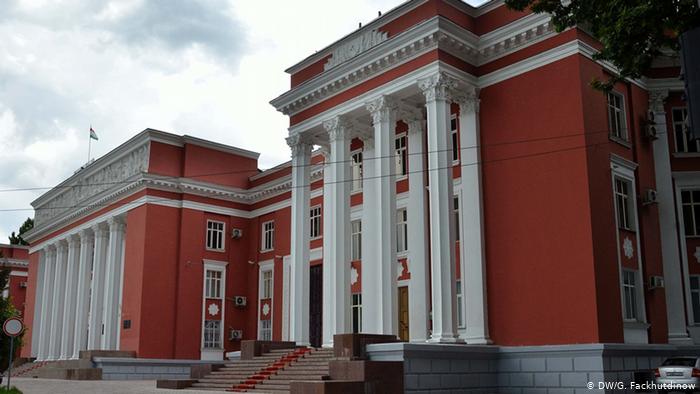The Central Commission for Elections and Referenda (CCER) says by-elections to the Majlisi Namoyandagon (Tajikistan’s lower chamber of parliament) were held in Jabbor-Rasoulov, Devashtich, Jaloliddini-Balkhi and Vakhsh constituencies on April 18.
Parliamentarians representing these constituencies in the Majlisi Namoyandagon resigned in connection with the appointment to the posts in the ruling party and the government, according to the CCER press center.
Bahodour Akramzoda, who represented Jabbor-Rasoulov district (Sughd province) in the Majlisi Namoyandagon, was appointed the chairperson of Shahriston district in Sughd province
Zufar Ismoilzoda, who represented Devashtich district in the Majlisi Namoyandagon, was appointed to head the Central Executive Committee of the organization of the ruling People’s Democratic Party in Sughd province.
Hokim Kholiqzoda, who represented Jaloliddini-Balkhi district in the Majlisi Namoyandagon, was appointed the Chairman of the National Bank of Tajikistan (NBT).
Bakhtovar Safarzoda, who represented Vakhsh district (Khatlon province) in the Majlisi Namoyandagon, was appointed the Permanent Representative of Tajikistan in the Interparliamentary Assembly of the CIS.
All of them are members of the ruling People’s Democratic Party of Tajikistan.
Faizullo Qosimi, who had previously served as first deputy head of Jabbor-Rasoulov district, was elected to represent Jabbor-Rasoulov district in the Majlisi Namoyandagon. He is member of the ruling People’s Democratic Party of Tajikistan (PDPT).
Komron Ismoiliyon, an activist of the Tajik ruling party, was elected Devashtich district in Tajikistan’s lower chamber of parliament.
Ms. Husnigul Odinazoda, an activist of the Tajik ruling party, was elected to represent Jaloliddini-Balkhi district in the Majlisi Namoyandagon.
Munavvar Abdusalomzoda, who is also an activist of the Tajik ruling party, was elected to represent Vakhsh district in the Majlisi Namoyandagon.
Deputies of the Majlisi Namoyandagon are elected on the basis of universal, free, equal, and direct elections by means of secret ballot.
Under the country’s legislation, the CCER holds parliamentary by-elections within three months after resignation of parliamentarians.




